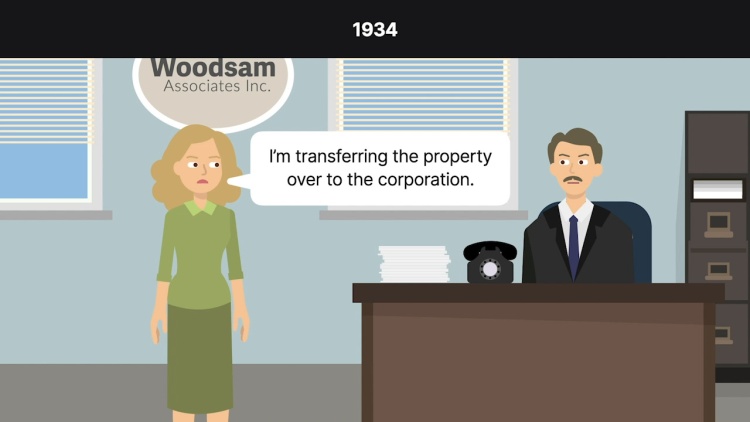Woodsam Associates, Inc. v. Commissioner
United States Court of Appeals for the Second Circuit
198 F.2d 357 (1952)

- Written by Robert Taylor, JD
Facts
In 1922, Mrs. Wood acquired commercial property for $296,400. Mrs. Wood financed part of the purchase price with a mortgage for which she was personally liable. Mrs. Wood took out additional recourse mortgages secured by the property during the subsequent years. In 1931, Mrs. Wood refinanced these various mortgages into a new $400,000 nonrecourse mortgage. Refinancing to a nonrecourse mortgage resulted in (1) a cash payment to Mrs. Wood and (2) the extinguishment of her personal liability for the mortgage. In 1934, Mrs. Wood and her husband formed Woodsam Associates, Inc. (Woodsam) (plaintiff) as a holding company for their real-estate assets. Mrs. Wood transferred the property to Woodsam, along with other properties that she owned. In 1943, the mortgage lender on the property foreclosed to satisfy an outstanding loan balance of $381,000. The mortgage lender acquired the property at the foreclosure sale. Woodsam filed an amended tax return for the year of 1943, seeking a tax refund on the premise that Woodsam’s taxable basis in the property should be computed based on the amount of the nonrecourse mortgage. The tax commissioner (defendant) denied Woodsam’s tax-refund claim. Woodsam petitioned the United States Tax Court for a redetermination. The tax court held in favor of the commissioner, and Woodsam appealed to the United States Court of Appeals for the Second Circuit.
Rule of Law
Issue
Holding and Reasoning (Chase, J.)
What to do next…
Here's why 907,000 law students have relied on our case briefs:
- Written by law professors and practitioners, not other law students. 47,100 briefs, keyed to 996 casebooks. Top-notch customer support.
- The right amount of information, includes the facts, issues, rule of law, holding and reasoning, and any concurrences and dissents.
- Access in your classes, works on your mobile and tablet. Massive library of related video lessons and high quality multiple-choice questions.
- Easy to use, uniform format for every case brief. Written in plain English, not in legalese. Our briefs summarize and simplify; they don’t just repeat the court’s language.





